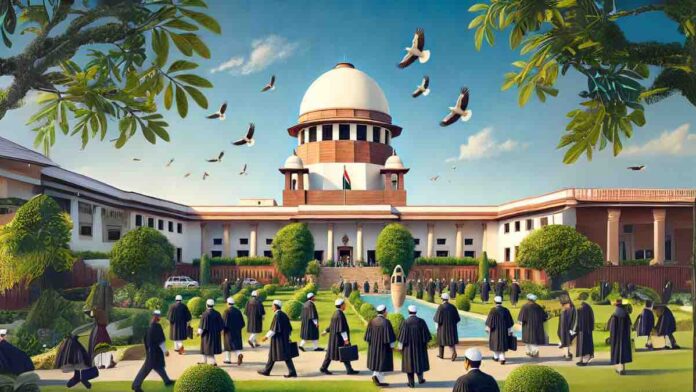In a significant ruling, the Supreme Court of India has reaffirmed that seniority in government service must be counted from the date of initial appointment unless specific rules dictate otherwise. The decision was delivered in the case of V. Vincent Velankanni vs. Union of India & Others (Civil Appeal No. 8617 of 2013), where the
To Read More Please Subscribe to VIP Membership for Unlimited Access to All the Articles, Download Available Copies of Judgments/Order, Acess to Central/State Bare Acts, Advertisement Free Content, Access to More than 4000 Legal Drafts( Readymade Editable Formats of Suits, Petitions, Writs, Legal Notices, Divorce Petitions, 138 Notices, Bail Applications etc.) in Hindi and English.




